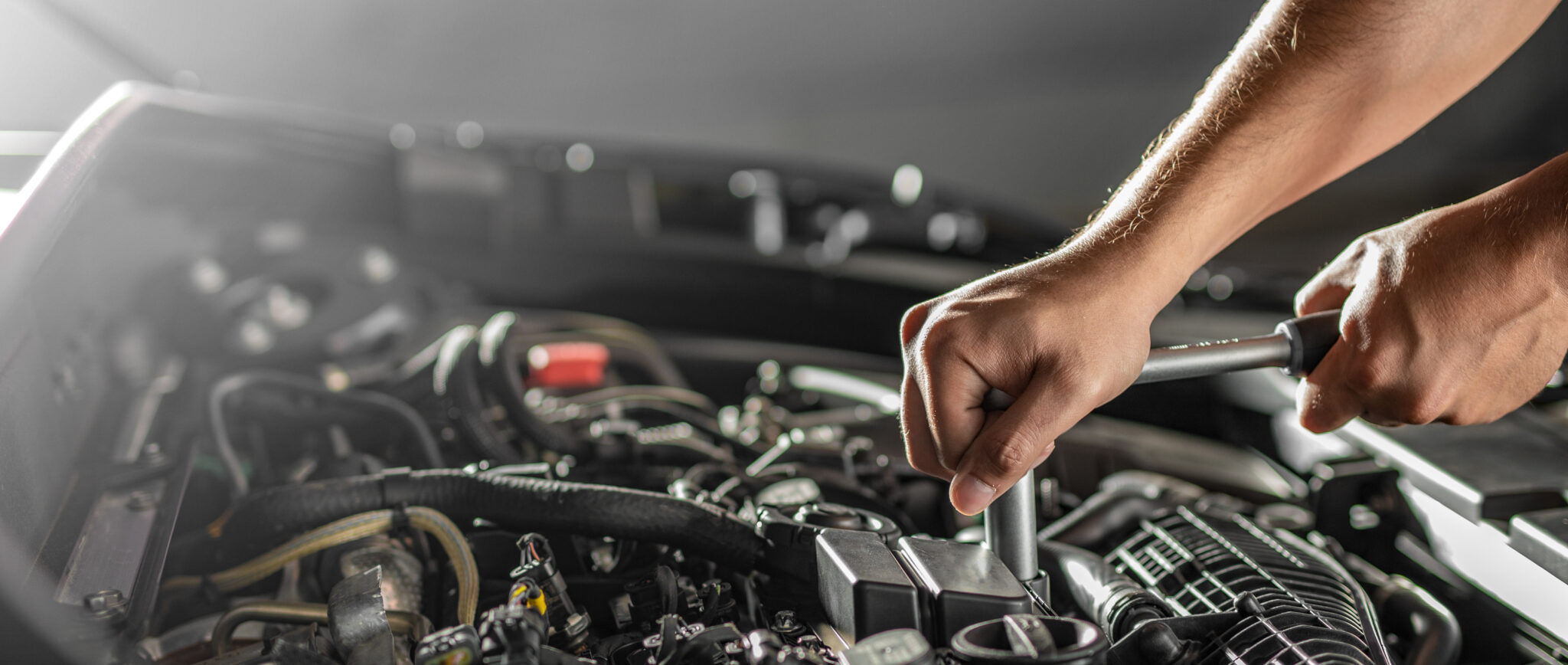

Finding a trustworthy mechanic can be a daunting task, especially if you don’t have much experience with car repairs. However, having a reliable mechanic is crucial for maintaining your vehicle and ensuring its safety and longevity. This guide will provide you with practical tips on how to find a mechanic you can trust.
1. Ask for Recommendations
Start by asking friends, family, and colleagues for recommendations. People you know and trust are likely to give you honest feedback about their experiences. Word of mouth is one of the best ways to find a reputable mechanic. Additionally, you can ask for recommendations on social media or local community groups.
Personal recommendations often provide insights into the quality of service and the mechanic’s reliability. When you ask for recommendations, be sure to inquire about the specific services they received and how the mechanic handled their repairs. Ask if the mechanic explained the issues clearly, provided accurate estimates, and completed the work on time.
Gathering detailed feedback can help you form a clearer picture of what to expect from the mechanic. Sometimes, knowing someone who has had a long-term relationship with a particular mechanic can be especially reassuring, as it suggests consistent and reliable service over time.
2. Read Online Reviews
Pay attention to the overall rating and read through several reviews to get a sense of the mechanic’s reputation. Look for comments about the mechanic’s honesty, quality of work, and customer service. Be cautious of reviews that seem overly positive or negative, as they may not be entirely genuine.
Look for a consistent pattern in the feedback to make an informed decision. Online reviews can provide a broader perspective on the mechanic’s service. Pay attention to how the shop responds to negative reviews. A professional and constructive response to criticism can be a good sign of a mechanic who values customer satisfaction and is willing to address issues.
Also, check for recurring themes in the reviews. If multiple reviewers mention specific strengths or weaknesses, it can help you identify what the mechanic excels at or areas where they might fall short. Keep in mind that no mechanic will have a perfect record, but a high overall rating and positive trend in reviews are good indicators of a trustworthy service.
3. Check Certifications
A trustworthy mechanic should have the necessary certifications to work on your vehicle. Look for certifications from recognized organizations that indicate that the mechanic has undergone training and has the skills needed to perform quality repairs. Additionally, check if the repair shop has certifications from car manufacturers or other industry organizations, which can further validate their expertise.
Certifications are not just about qualifications; they also demonstrate a commitment to ongoing education and staying current with industry standards. When visiting the shop, look for certificates displayed prominently, which can reassure you of their credibility. Mechanics who invest in continuing education are likely to be more knowledgeable about the latest automotive technologies and repair techniques, which is especially important for newer vehicle models. This dedication to professional development indicates a higher level of service and a greater likelihood of accurately diagnosing and repairing issues.
4. Visit the Shop
Visit the repair shop to get a feel for the environment. A clean, organized, and professional-looking shop is often a good sign. Pay attention to how the staff treats you and other customers. Are they friendly, helpful, and willing to answer your questions?
A trustworthy mechanic will take the time to explain the issues with your car and the necessary repairs without pressuring you into making quick decisions. Observing the shop’s condition and the staff’s behaviour can give you a better sense of their professionalism and customer service. During your visit, note how busy the shop is and how efficiently it operates. A busy shop often indicates a strong customer base and trust within the community.
However, make sure they are not too overbooked, as this might affect the quality of their work. Engage with the staff and ask about their experience and qualifications. A professional and knowledgeable team will be able to answer your questions confidently and provide clear explanations. Additionally, observe the types of vehicles being serviced. If you see cars similar to yours, it suggests the mechanic is experienced with your make and model.
5. Get Estimates
Before committing to any repairs, get estimates from multiple mechanics. This will give you an idea of the average cost for the repairs and help you avoid being overcharged. Be wary of estimates that are significantly lower than others, as they may indicate the use of subpar parts or a lack of thoroughness in the repair process.
A trustworthy mechanic will provide a detailed estimate that includes labour, parts, and any additional fees. Comparing estimates helps you make an informed decision and ensures you are getting fair pricing. When obtaining estimates, ask for a breakdown of the costs. A detailed estimate will help you understand what you are paying for and identify any potential hidden fees. Discuss the parts being used, and inquire whether they are original equipment manufacturer (OEM) parts or aftermarket parts.
While aftermarket parts can be cheaper, they may not always match the quality of OEM parts. A transparent mechanic will explain the differences and help you make an informed choice. Additionally, ask about the expected timeline for the repairs. A reputable shop should be able to provide an estimated completion date and keep you informed of any delays or changes.

6. Ask About Warranties
A good mechanic will stand behind their work and offer warranties on parts and labour. Ask about the shop’s warranty policy and make sure it is in writing. A warranty provides peace of mind that the mechanic is confident in their work and willing to address any issues that may arise after the repair.
Understanding the warranty terms, such as the duration and what it covers, helps you know what to expect if any problems occur post-repair. When discussing warranties, ask if there are any conditions that might void the warranty. Some warranties may require you to return to the same shop for any follow-up repairs or maintenance. Ensure you understand these conditions to avoid any misunderstandings in the future.
A reliable mechanic will be transparent about their warranty policies and provide clear documentation. Additionally, ask if they honour manufacturer warranties on parts or offer any extended warranties. This can further protect your investment and give you confidence in the quality of the parts and labour provided.
7. Trust Your Instincts
Trust your instincts when choosing a mechanic. If something feels off or you’re uncomfortable with the shop or the mechanic, it’s okay to walk away and continue your search. Your gut feeling can be a valuable tool in assessing whether a mechanic is trustworthy. Feeling confident and comfortable with your choice ensures a positive experience and better communication throughout the repair process.
If you sense that a mechanic is being evasive or not providing clear answers, it may be a red flag. Transparency and open communication are key indicators of a trustworthy mechanic. Pay attention to how the mechanic listens to your concerns and addresses them. A mechanic who takes the time to understand your needs and provides thoughtful, detailed responses is more likely to be reliable.
Additionally, consider how the mechanic reacts to questions about their credentials, certifications, and experience. A reputable professional will welcome these questions and provide reassuring answers.
8. Start with Small Repairs
If you’re trying out a new mechanic, start with a small, routine service like an oil change or tyre rotation. This gives you a chance to evaluate their professionalism, communication, and quality of work before entrusting them with major repairs. Observing how they handle minor tasks can provide insights into their overall capabilities and trustworthiness.
During the initial visit, note how promptly they complete the work and whether they adhere to the estimated time frame. Pay attention to how they communicate any additional findings or recommendations. A trustworthy mechanic will inform you of any potential issues discovered during the service and provide options for addressing them without pressuring you. Use this opportunity to assess their transparency and honesty.
If the mechanic identifies a problem, ask for a detailed explanation and consider getting a second opinion to verify the diagnosis. Building a relationship with a mechanic through smaller services can establish trust and give you confidence in their abilities when more significant repairs are needed.
9. Look for Longevity
A repair shop that has been in business for a long time is often a good sign of reliability and quality service. Longevity in the industry suggests that the mechanic has a loyal customer base and a solid reputation. Additionally, experienced mechanics are more likely to have encountered a wide range of issues and developed the skills to address them effectively.
When researching a shop’s history, ask about their experience with your specific make and model of vehicle. A shop that has successfully operated for many years likely has mechanics with extensive experience and expertise. Consider looking for shops that have been passed down through generations, as this often indicates a strong commitment to maintaining a high standard of service. Long-established shops may also have established relationships with parts suppliers, ensuring quicker access to high-quality components for your repairs.
10. Check for Professional Affiliations
Mechanics who are members of professional organizations adhere to a code of ethics and commit to continuous education. These affiliations indicate a dedication to maintaining high standards and staying updated with industry advancements. Being part of a professional organization also shows that the mechanic values credibility and professional growth.
When researching a mechanic’s affiliations, check if they participate in industry conferences, training programs, or workshops. Active involvement in professional development demonstrates a commitment to staying current with the latest technologies and repair techniques. Affiliations with car manufacturers or dealerships can also indicate specialized knowledge and access to proprietary information and tools. Mechanics who prioritize ongoing education and professional development are more likely to provide high-quality service and accurate diagnostics.
Additionally, membership in professional organizations often means the mechanic is held to a higher standard of accountability and ethics.
Conclusion
Finding a trustworthy mechanic involves research, recommendations, and trusting your instincts. By asking for recommendations, reading online reviews, checking certifications, visiting the shop, getting estimates, asking about warranties, trusting your instincts, starting with small repairs, looking for longevity, and checking for professional affiliations, you can find a mechanic who is reliable and provides quality service.
A trustworthy mechanic is essential for keeping your vehicle in good condition, ensuring your safety, and giving you peace of mind on the road. Taking the time to find the right mechanic will pay off in the long run, providing you with a dependable partner in maintaining your vehicle. Prioritizing these steps will help you establish a long-lasting relationship with a mechanic who values your business and is committed to keeping your car running smoothly.
Insurance.co.za Content Team
We’re a specialist team of insurance and finance copywriters and content producers. The Insurance.co.za Content Team is a flexible and dynamic team. Hence we publish our content under the Insurance.co.za brand name rather than our personal names.
Other posts





